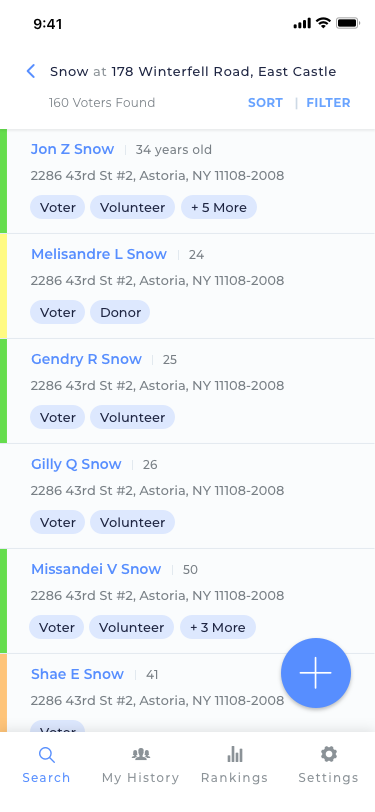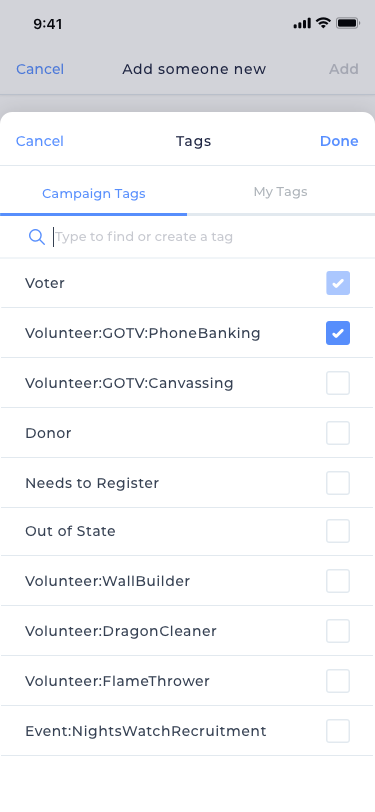Search by keyword
About Tags

What are Tags?
One important way to organize the people in your Reach campaign is Tags. Tags can be completely customized per campaign so each campaign will decided what sort of tags make the most sense for their specific organizing goals. Some common tags might be, “Volunteer”, “Needs to Register”, “Member”, “Donor”, “Petition Signer” or even something like “Event: GND Town Hall 0525”.
Tags display throughout Reach in light blue bubbles. They can be found on the Search Results screen, the My Reach screen, and the Person Profile Screen.
On all list-views (History, Network, and Search Results) you can decide whether or not to display tags by tapping the Refine button in the top right and toggling tags on or off.
Where do Tags come from?

Every person in Reach will have at least one tag applied to them. The first tags on people will be applied by Reach, either via bulk import when we’re first setting up your campaign or when you add them using the app. This is what we call a “Source Tag” and usually tells you whether the person is a “Voter” or a “Reach Add”. Additional tags may be added at any time by any user from the person’s profile screen.
Tags can also be added from the “Add someone new” screen as you’re creating a new Reach Add.
Additional “Smart Tags” may be pre-applied to people based on certain criteria about them, like which district they are registered to vote in, which political party they’re in, etc. Some tags will also be locked on people so you can’t remove them or manually add them.
The list of available tags is determined by each campaign’s administrators. If you would like to see more tags that you don’t currently see, ask your campaign admins to make them for you.
How can I use tags?
Tags are especially useful for seeing important information about someone at a glance. Also, tags can be used as a quick easy way to filter your Network view, or a Network Contact action card, to narrow down your network to a certain sub-set of people.


